Trending
Opinion: How will Project 2025 impact game developers?
The Heritage Foundation's manifesto for the possible next administration could do great harm to many, including large portions of the game development community.

Featured Blog | This community-written post highlights the best of what the game industry has to offer. Read more like it on the Game Developer Blogs or learn how to Submit Your Own Blog Post
This is a postmortem for my second game release, and I share lessons learned for staying sane in independent solo game development.
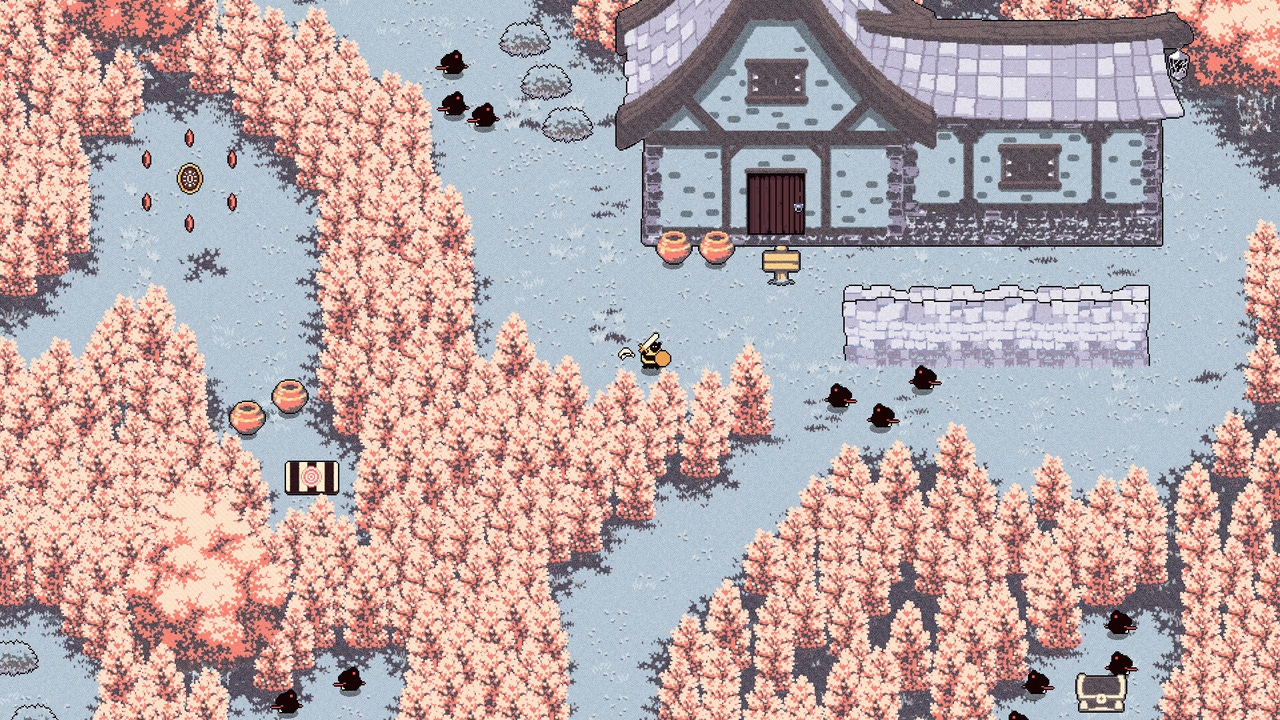
Hey everyone, my name is Jacob Weersing, I’m the solo developer behind “The Last Humble Bee”, which I released on Steam on November 21st. (Please play it and leave a review!)
This is my second steam release, but over the last 2 years of solo developing this hack-and-slash survivors-like game, I’ve learned a lot of valuable lessons! In this postmortem, I hope to reflect and organize my thoughts in a way that distills information succinctly and is helpful.
I have a full-time job (a pretty difficult and cerebral job if I may say), so for me, Game Dev ends up being a passion project. I released a free-to-play game “Bass Monkey” on Steam in 2022 and I wrote a postmortem for that experience (located here for your reading pleasure).
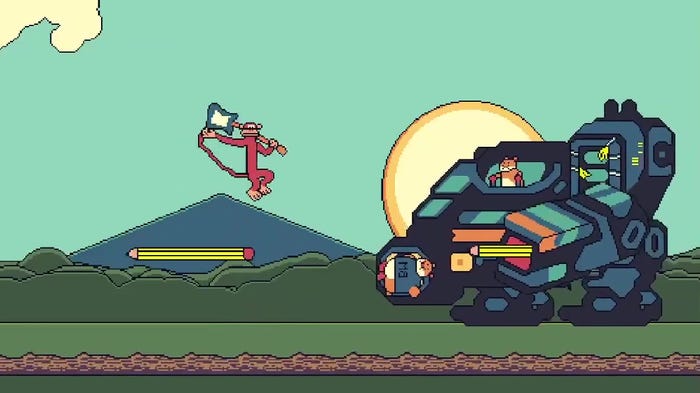
So much monke
I mention all this for the sake of continuity, and to contextualize this post. My first “Bass Monkey” postmortem was more of a Beginner’s/technical guide, and this “Humble Bee” postmortem is more like a continuation of that journey, but mostly sharing psychological lessons about staying sane with this continuing Game Dev habit. Please don’t consider me an expert; I’m more of a hobbyist (even though it feels like it’s more than just a hobby at times).
That being said, here are a few lessons I’ve learned:
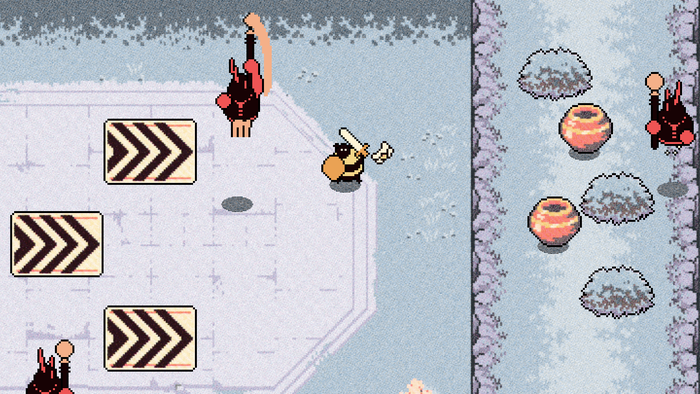
You gotta battle those demons
OK this header is a bit hyperbolic and click-baity… but it has a silver lining, I promise -
Listen, if you’re taking up painting, you don’t paint your first picture (or second…or third…) and then expect people to gather around in aww, deeming you the next Vincent Van Gogh in your almighty righteous artistic glory! Right? I mean, Van Gogh’s art was considered worthless while he was alive. He wasn’t fully appreciated for his work until AFTER HE DIED. And the dude painted like 2,100 artworks over his lifetime. I’m not saying that nobody will appreciate your work until you’re dead. But c’mon. You’ve got to put your hypothetical 10,000 hours of deliberate practice in before making some good stuff.
I feel like people (myself included) routinely expect to make their first game(s) and have it reach critical acclaim, making them rich and famous in the process. But that’s just not how it works. I feel like expecting that is a road to insanity. It’s simple (but hard). We make games that we like and share it with people that we like; rinse and repeat. And over time, we improve our skills! I don’t think there’s anything wrong with toiling away in quiet obscurity for a time. In fact, it might be beneficial: you can best hear your own voice in the silence, after all. For every Eric Borone that made Stardew Valley for his first commercial game (though, I believe even HE had to re-draw his art assets several times over the span of 4.5 years), you have developers like Scott Cawthon who made like 70 games before hitting it big with Five Nights at Freddy’s. Nobody has it easy. Maybe just plan on having your 10th game be your magnum opus. That way, all you need to do is focus on is making your first 9 games. Jake Birkett talks about going 11 years without a hit in his GDC talk.
Nobody cares about your game(s) as much as you do, and that’s OK. If anyone does care, then that is an ABSOLUTE WIN AND YOU SHOULD TREASURE THAT PERSON. Meanwhile, I’ve learned to just focus on the craft and shout from the rooftops when you have something playable to share.
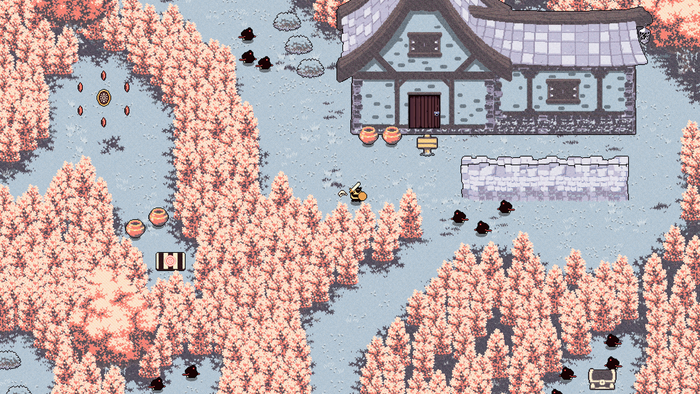
It’s easy to get lost in the woods
I mentioned in my last post-mortem that I try to measure my game dev success purely based on the number of my released games on Steam. But throughout the last 2 years, I lost my way. I don’t know what it is (sunk cost fallacy?), but the longer you work on a skill (and the better you get at it), you really start to hope that you can make some money off your passion, turning it into a “side-hustle”. I started measuring my success based on my quantity of Steam “Wishlists” and how much money I might make from the eventual release.
My first game, Bass Monkey, was totally free, but I’m still selling Humble Bee for a few bucks. I think I’ve got my head back on straight, but it’s important for me to remind myself that the joy is in the work, NOT THE RESULTS. I mean, recall a time when you had a dream (eg, making your first video game, graduating from school, etc.) that you FINALLY achieved after years of toil. Remember how amazing that achievement felt, FOR ALL OF 5 SECONDS? Humans are wired to WORK. We reach the flow state (ie, have fun), while concentrating on a task at just the right balance between frustration and boredom. Happiness actually, counterintuitively, happens when WORKING TOWARDS a goal, rather than ACHIEVING the goal itself. It’s kinda messed up, but happiness isn’t something you can ATTAIN; it’s something you EXPRESS. So, enjoy the work and express the joy. Release games and the achievements will come with due time.
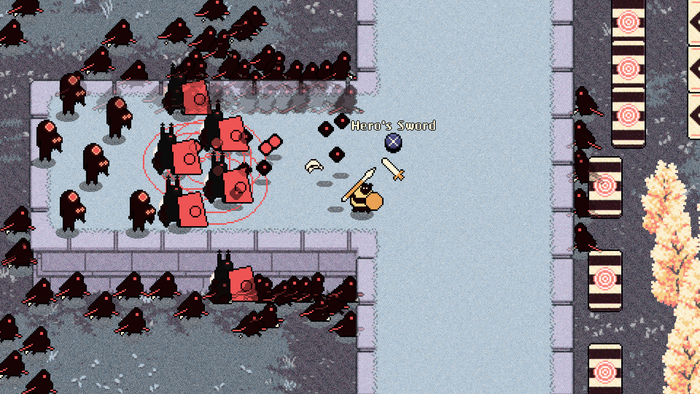
Against all odds, you gotta finish
Finishing this game was really hard. I’m not gonna lie. I don’t know, but 2 years is a long time to work on a project alone (I don’t know how some solo developers go for longer in isolation…) Even though in my last post-mortem I proposed that you should TRIPLE your original timeline estimate. I didn’t heed my own advice. I got “scope-creep”. And indeed, a 9-month project once again ended up taking three times longer than expected (27 months!) It’s hard, and after many “dark nights of the soul” and working on Game Dev every single day (for 10 min to 2 hours per day), eventually the game gets done. Aim high, my friends, but check out these resources to identify your blind spots and get some motivation to work towards being a “finisher”:
Refine your Game Dev search algorithm – a video by Jonas Tyroller
Read about Indie Dev archetypes - articles by Derek Lieu
Read and re-read “The Creative Act: A way of Being” - A book by Rick Rubin
Read “Keep Going” - A book by Austin Kleon
Read “Atomic Habits” - A book by James Clear
Now, I want to finish off with one technical section, which is more “nitty gritty”:
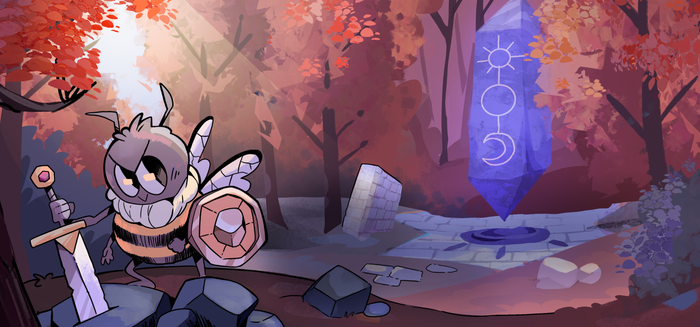
In the end, it doesn’t really matter HOW you made it, just THAT you made it
Programming: I used the Gamemaker engine (and its C-based language, [GML]) developing “The Last Humble Bee”. I talked about this in my last postmortem, and I do think that it’s a solid language/engine to start making games quickly. But for this largish-scope 2.5D game (where I had to learn to program all of the jumping physics, collisions, and rendering pipeline to achieve the 3D-ish effect), making the thing just got super unwieldy. Further, since there’s no real official “asset store” to help save time, I can’t seem to find a way around re-inventing the wheel with each game. Next time I’ll be using Unity to make a full-blown 3D game (I’ve tried Godot, Unreal, and Unity over the last several months as a learning experience, which is maybe a post for another time), because I think the unity asset store is an unparalleled time-saver. But any of the options I listed above have much more “built-in” functionality right out of the box for games with more than 2 dimensions. I will probably still come back to Gamemaker for pure 2D games, but I’ll be trying something new with the next game.
Art: Most of the art in The Last Humble Bee came from io, purchasing and altering asset packs with a CC0 license from talented pixel artists. After hand-pixelling everything in Bass Monkey myself, buying assets was a humongous time-saver. I would recommend going this route if you’re not an artist first and foremost. It’s better to spend your time on other strengths and just buy and tweak art assets (if you can afford it).
Music: I made the music myself. Music is why I got into game development in the first place! I used some sampled bumble bee sounds. Played my bass and guitar over some drum loops. Good times. Love this part of development. Though, there’s a lot of time to be saved by licensing music if you’re not a musician. And a lot of talented musicians out there that would be happy to license their music to you.
Marketing: OK maybe this is a hot take, but I am now CONVINCED that 90% of game marketing is simply having a memetic game idea (ie, contagious, unique, remarkable) that people see a gif for 5 seconds and it just HAS THAT MAGIC. I have yet to truly find the “magic” for a hit game idea …but by the time I do, I hope that I’ve acquired the skills of a Game Dev craftsman to build a solid game experience around that. Really, there’s only a few marketing tactics that a game dev can utilize. Since I haven’t found a way to make marketing fun, I’m trying to abide by the “be so good they can’t ignore you” plan and focusing on honing my craft. That being said, I do follow these few marketing strategies with every game that I make (and NOTHING more):
Have a website that I keep updated with a press kit for each game
Make 1-2 trailers per game (pay someone if needed)
Have a nice steam page (no typos!) with nice capsule art (pay someone if needed)
Publish a game demo EARLY and enter it for every game festival you possibly can (including Steam Next Fest at the end of development) (note: you will get rejected A LOT)
If I feel like it, reach out to a few friendly content creators before demo and release
Slowly work towards building an email list where you alert folks of new demos and release timing. And occasional cool things you’d like to share. I just link back to this email list inside all my demos and games with a lead magnet.
Sometimes I tweet and use x.com for fun
Sales are still TBD! I am selling my game for $4.99 and have accumulated ~3000 wishlists at release. My first game had ~500 wishlists at release? They say to “Compare yourself to who you were yesterday, not to who someone else is today”, and in that regard, I am already proud of what I’ve accomplished with my 2nd game.
Anyway, I’m just hoping to spark some joy in players share my creations :) I actually think that Humble Bee turned out really fun and feels like it generates an experience worth the $5 price tag. So again, please do check out my game(s) and leave a review :) If you’re so inclined, then feel free to follow me on X or join my email list for future games and updates. I hope this is useful for some folks. See you at my Game #3 postmortem (which WILL BE less than 2 years from now, I swear…)
Best,
Jacob Weersing
Creator of Bass Monkey and The Last Humble Bee
Twitter: @YakobSoup
Email: [email protected]
You May Also Like